Americans started taking dietary supplements back during the 1940s and has become a part of our daily routines like making our beds after waking up. Not everyone does it, but a good chunk of the population does. Here are 10 supplements & vitamins that you should take.
Table of Contents
i. Introduction
ii. 10 Best Supplements for Men
- Turmeric and Curcumin
- Whey Protein
- Vitamin D
- Coenzyme Q-10
- Probiotics
- B Vitamin Complex
- Omega-3/ Fish Oil
- Essential Amino Acids
- Acetyl l Carnitine, phosphatidylserine, glycerophosphocholine (GPC)
- Multivitamin
iii. 10 Best Supplements for Women
- Iron
- Apple Cider Vinegar
- Vitamin D
- Collagen
- Fish Oil/ Omega 3
- Baby Aspirin
- Probiotics
- Magnesium with Calcium
- B Vitamin Complex
- Multivitamin
iv. 10 Best Natural/Herbal Supplements
- Pomegranate Extract
- Ginkgo Biloba
- Cinnamon
- Glucosamine
- Ginger
- Garlic
- Asian Ginseng
- Melatonin
- Chromium
- Beetroot
v. Medically/Scientifically Proven Weight Loss Supplements
- Alli- Orlistat
- Contrave- Bupropion + Naltrexone
- Belviq- Lorcaserin
- Saxenda
- Qsymia- Phentermine + topiramate
Introduction
The first and most popular supplements were multivitamins. Today, it is estimated about one-third of all Americans take multivitamins. However, the purchase of multi-vitamins accounts for only one-sixth of all dietary supplement purchases.
The healthcare industry is an international trillion-dollar market. But in the United States, the supplement industry is continuing to gain momentum because of the declining nutritional value of food.
In 2024 the dietary supplement market is estimated to revenue close to $278 billion. There are nutritional needs the American population fulfills through dietary supplements because most of the affordable foods are devoid vital micronutrients.
Due to convenience and need to keep food on the shelves longer, companies are infusing foods with preservatives, chemicals, added coloring, and genetically altering the foods for size.
Everything You Need to Know About Biotin
Also, much of the meats are over-processed, and carbohydrates are more refined and lack any nutritional fortitude.
More individuals are becoming sick due to nutrient deficiencies. Instead of getting the full spectrum of vitamins and minerals through foods, it has become more convenient to pop a multivitamin.
This need for convenience has caused the surge in supplement consumption because of increasingly longer workdays, and need to eat on the run.
There’s less strategy now more than ever to figure out the best way to incorporate all nutritional Daily Values (DV) during the day, but then again there has never been such wide array of supplements to combat malnutrition.
Vitamins and minerals are vital to how our bodies operate and boost our immune system and can help the overall human movement system. Dietary supplements can also contribute to preventing the onset of various diseases like dementia, various cancers and cardiovascular diseases, nerve inflammation, and can impact our mental health.
However, there’s a notion in American Culture of a lot is better than a little, and when it comes to vitamins and minerals, and other supplements, the Food and Nutrition Board of the Institute of Medicine does establish principles and guidelines for dietary intake.
The dietary references intake also known as DRI, caters it’s nutritional values to “healthy people.” Which of course is determined age and gender. Which means, depending on your age you might need a little extra calcium in your diet, or it’s imperative to get a boost of B12 every day.
However, not all vitamins are created equally. Some are water-soluble, and others are fat-soluble and can have adverse effects on the body. For example, Vitamin A, which is found in carrots is a fat-soluble vitamin.
Which means, the vitamin is absorbed and stored in your fatty tissues and too much of vitamin A can lead to overdose. Whereas Vitamin C is water-soluble and quickly absorbed into the body and any extra water-soluble vitamins will be excreted through urine.
So when looking at the spectrum of supplements between age and genders and which would be best, it was taken into account that men and women have different Recommended Dietary Allowances (RDA). And of course, the Adequate Intake (AI) versus Tolerable Upper Intake Level (UL) can vary person to person.
When designing your personal health goals and figuring out whether to include supplements into your daily routine, it would be advised to speak to your doctor first.
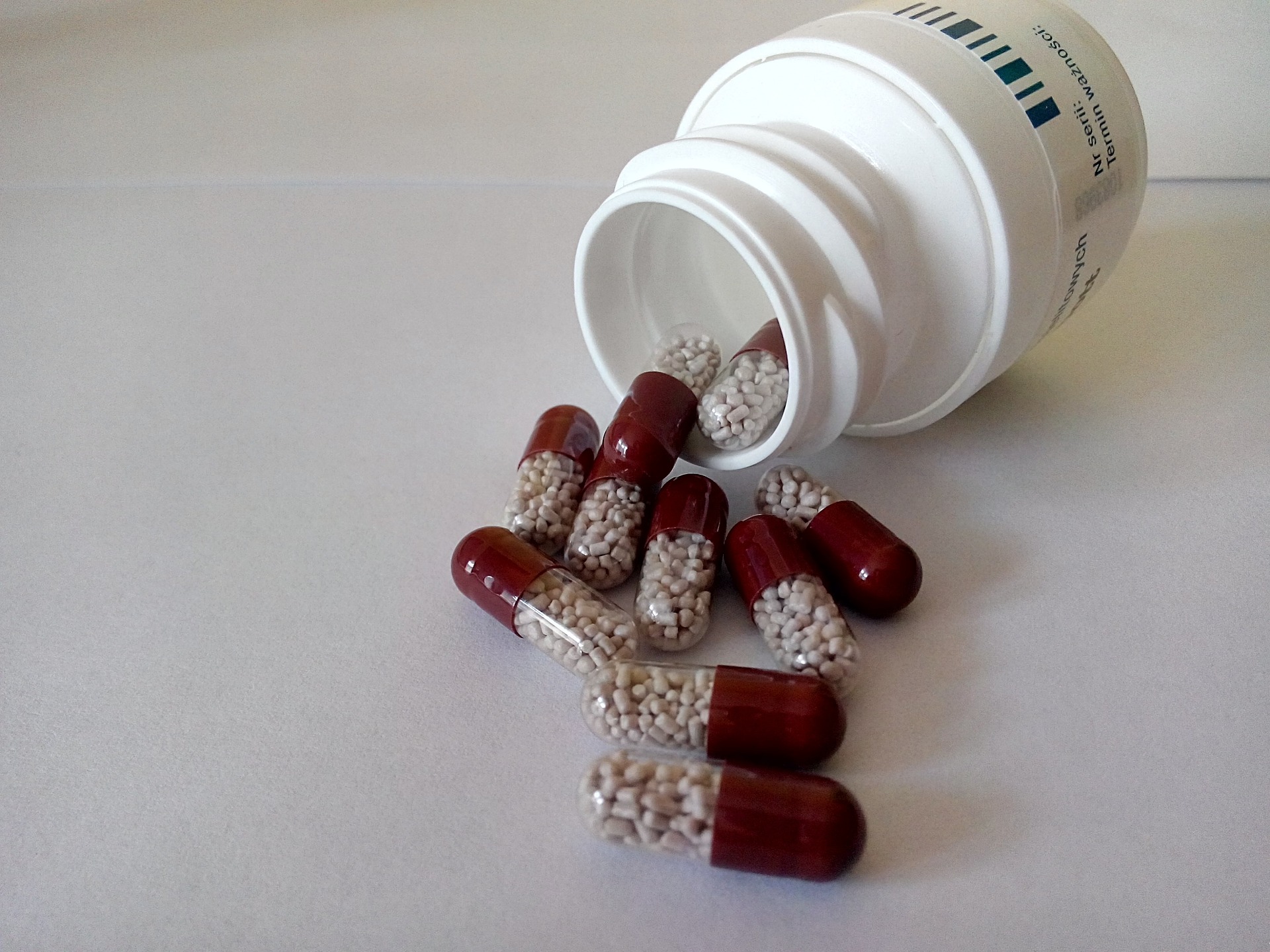
10 Best Supplements for Men
1. Turmeric and Curcumin
Turmeric is one of the most effective nutritional supplements you can get. The active ingredient in Turmeric is Curcumin, and it has medicinal properties which have been used in India for thousands of years.
If you’re wondering what Turmeric is, it’s the ingredient in the curry which gives it the yellowish-orange coloring.
Turmeric and Curcumin have been clinically studied to help alleviate inflammation throughout the body, including oral health and cancers. It’s been proven to support joint health, and help with healing kidneys and the liver.
Turmeric bolsters the immune system and is a strong antioxidant so it can fight against free radicals and foreign pathogens. Turmeric and curcumin are a two-for-one deal because it blocks free radicals, while also stimulating the body’s antioxidant enzymes while increasing the immune system.
Other known benefits of Turmeric is arthritis relief. In one study turmeric proved to be more efficient with soothing inflammation in the joints of those who have rheumatoid arthritis.
When taking turmeric, it is encouraged to take it with peppercorn because it will improve the body’s absorption of the beneficial compounds.
2. Whey Protein
The most popular form of protein, whey protein does more than just help people at the gym make serious muscle gains. Whey is the protein that separates from milk during cheese production.
It’s easily absorbed into the body compared to other proteins, plus it contains all essential amino acids, which are the building blocks of promoting muscle growth. You can purchase Whey Protein in three different types: Concentrate, Isolate, and Hydrolysate.
The most common type of whey protein is concentrated, and many bodybuilders and athletes use this to help strengthen and to build muscle.
But did you know that whey protein can help with blood sugar management too? Through various clinical studies, it has shown whey protein significantly helps with insulin management, especially if whey is consumed before high-carbohydrate meals.
[11] Whey protein can be extremely beneficial to those with type II diabetes or insulin sensitivity. Because of the ability to help with glucose absorption in the bloodstream, whey protein can also help with weight management.
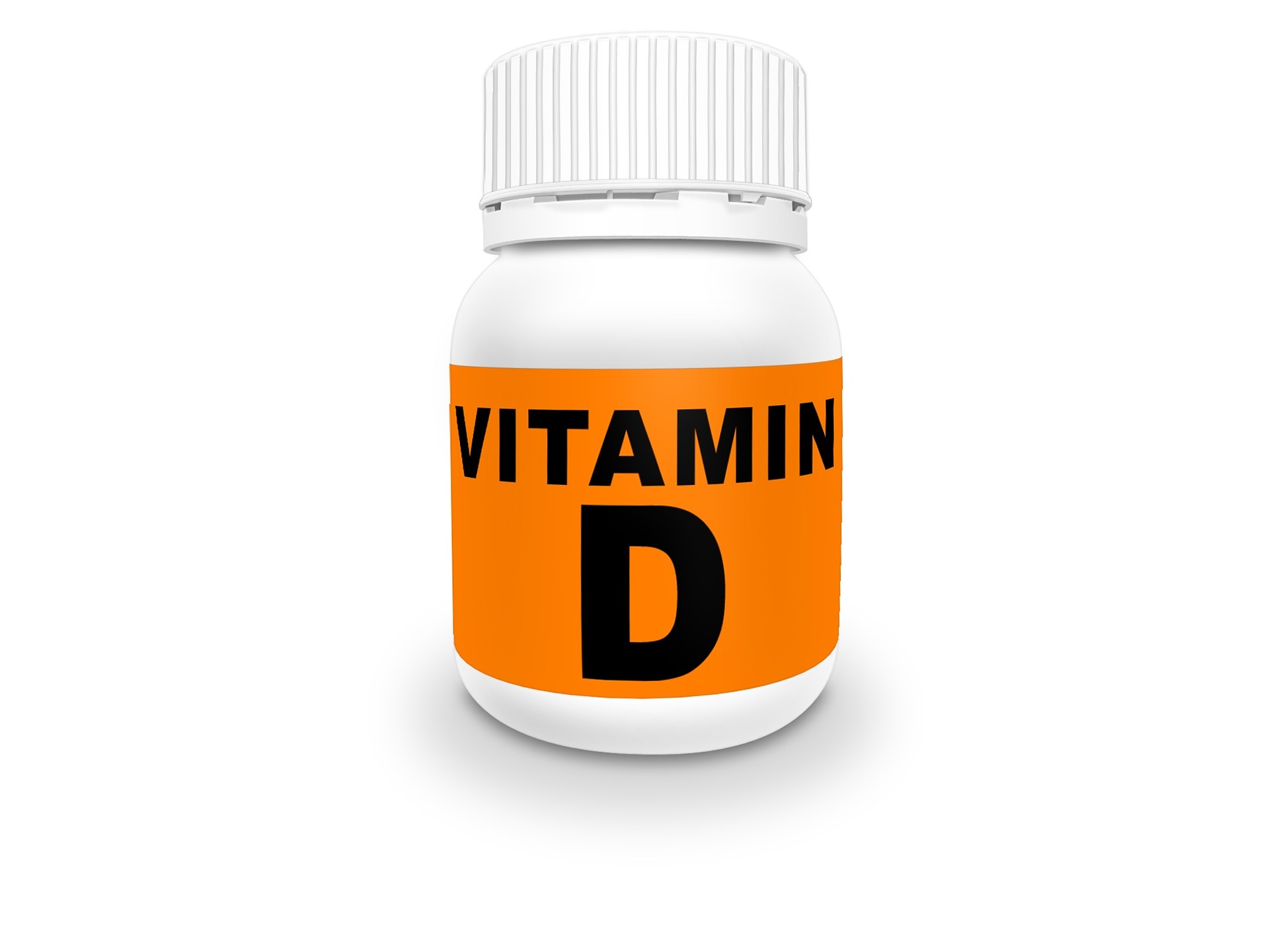
It can help suppress appetite, and with the amino acids to help promote muscle growth, with more muscle the basal metabolic rate (BMR) improves too, which means burn more calories at rest.
3. Vitamin D
The vitamin we all know about but is one of the highest vitamin deficiencies globally. 40-70% of children are already deficient in this vitamin, and upwards to one billion people throughout the world are too.
It’s known as the “sunshine vitamin,” because the best way to get vitamin D is by going outside and being out in the sun. Your skin makes Vitamin D from sunlight, and it’s free! Those who are deficient in Vitamin D are at higher risk of cardiovascular disease.
Vitamin D can help with strengthening bones, boosting the immune system, helping with inflammation, assisting in cancer prevention, and improving insulin maintenance.
Often this vitamin is overlooked because of the emphasis of the mineral Calcium. But having sufficient Vitamin D levels directly improves the body’s absorption of calcium.
When you are in Vitamin D deficiency your body begins to draw calcium out of the bones and into the bloodstream and can lead to rare diseases like hyperparathyroidism which can lead to kidney failure with high levels of calcium in the bloodstream.
It’s imperative for the body to remain a “well-oiled machine,” by including Vitamin D supplements, in particular for men because Vitamin D can assist with muscle and skeletal maintenance and has been linked to the prevention of colon and colorectal cancer.
Also, there’s been a connection to Vitamin D assisting in onsets of Parkinson’s Disease. Best supplementation of Vitamin D would be through products that are D3.
Vitamin D is also considered an anabolic supplement.
4. Coenzyme Q-10
Those who are looking for a little more pep in their step, and more energy in their lives, CoEnzyme Q-10, aka CoQ-10, is an antioxidant that helps with cell function.
This makes this nutrient essential for the health in all human tissue and organs because it’s directly connected to the synthesis and usage of adenosine triphosphate (ATP). ATP is vital because it’s energy.
CoQ10 is fat-soluble so a person can overdose on taking too much of this nutrient. A typical dosage is 30-90mg per day.
Those with deficiency have symptoms of heart failure, high blood pressure, and chest pain. This is important to sustain levels because as humans age, the ability to produce CoQ10 decreases.
So some benefits of CoQ10 is for better heart health, especially with age. It also can help with age-related macular degeneration, Alzheimer’s disease, amyotrophic later sclerosis, cataracts, chronic fatigue syndrome, coronary heart disease, heart disease, cholesterol, male infertility and much more.
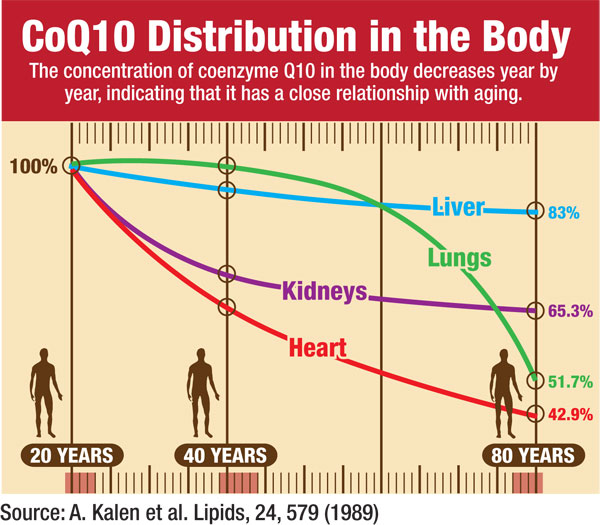
5. Probiotics
If you feel a cold coming on or have stomach sensitivity, at some point a friend may have suggested consuming a probiotic.
Probiotics are live microorganisms that are beneficial to how our body operates. Probiotics can be found in yogurt, fermented foods, and of course in probiotic supplements.
The most common bacteria in probiotics are Lactobacillus and Bifidobacterium. In the last two decades, Probiotics have gained momentum in the supplement world and is the third more popular supplement product.
Probiotics can help boost the immune system. It also can assist with gut health and gastrointestinal efficiency. It can help prevent diarrhea from certain medications and help alleviate the symptoms of irritable bowel syndrome.
Also, with the good healthy microorganisms in probiotics, it can assist in nutrient, vitamin and mineral absorption in the body during digestion. If you are on antibiotics, incorporating probiotic supplement would be encouraged.
6. B Vitamin Complex
When taking a B Vitamin Complex, it consists of eight B Vitamins including: B1 (thiamine); B2 (riboflavin); B3 (niacin), B5 (pantothenic acid); B6 (pyridoxine); B7 (biotin), also known as vitamin H; B9 (folic acid) and B12 (cobalamin).
Each one of these vitamins have their unique importance in the vitality and functioning of the human body. But the quick overview of B Vitamins is they help with the overall metabolization of food to energy and help with establishing a healthy nervous system.
For example, if you’re feeling overwhelmed and stressed out at work, it can have adverse effects on the body.
Well if you are taking B Vitamin Complex, B1 vitamins can help strengthen the body under stressful situations.
Also, helps with the metabolization of carbohydrates and synthesis of certain amino acids. B3 can help lower bad cholesterol (LDL) and help promote good cholesterol (HDL), which is imperative to cardiovascular health.
B9 Vitamin, Folic Acid, can help the production of red blood cells, which is how nutrients and oxygen flow through the body. The most well-known B Vitamin, B12, helps with energy levels.
So an overview of the benefits of B Vitamin Complex is, supports energy levels, prevent cardiovascular disease, help with mental health, keeps bones strong and blood flowing, and lastly assist with mental focus.
7. Omega-3/ Fish Oil
Many people are looking for a supplement that can be considered the “fountain of youth,” and when it comes to Omega 3s and Fish Oil capsules, this might be as close as it gets.
Omega-3 consists of two fatty acids, eicosapentaenoic (EPA) and docosahexaenoic (DHA), and getting them in fish oil capsules is the quickest and cheapest way to get Omega-3. Though, you can find Omega-3 in plant-based foods, such as flaxseeds and chia seeds.
Omega-3s and fish oil have increased in popularity as a supplementation product because it helps with mood, sleep, inflammation, ways to protect the heart, and lengthen life.
It’s imperative to have a balance of Omega-3s and Omega-6s, and the American diet consists of higher levels of Omega-6 fatty acids.
So by taking Omega-3 supplements, it helps restore the body to function at its best. One study has linked omega-3s to assist in reducing the risk of Prostate Cancer.
8. Essential Amino Acids
Recent studies have come out about the importance of taking essential amino acids to continue muscle growth as we age.
Though ingesting protein or protein supplement helps with muscle maintenance and growth, direct intake of amino acids is a quicker and more efficient way to trigger protein synthesis in the muscles to stimulate muscle growth through anabolism.
By allowing for muscle growth as humans age, this can help reduce injury, potential disabilities, and the progressive loss of muscle mass which naturally occurs in all humans—also known as sarcopenia.
Moreover, essential amino acids supplementation before exercise has been connected to stronger athletic performance and prolong the effects of fatigue. However, the timing of amino acids and protein can help to build new muscle fibers after a workout by stimulating hypertrophy.
9. Acetyl l Carnitine, phosphatidylserine, glycerophosphocholine (GPC)
Try to sound that supplementation out. Well if you begin taking this mouthful of a supplement, you might notice your cognitive performance, memory, and overall brain function will improve.
These three supplements together in products known at Nootropics. Acetyl L Carnitine, an amino acid, has been proven through clinical trials to help with cognitive declines.
If a person takes 1500mg of Acetyl L Carnitine, it can help with nerve damage and can help with neurotransmitters. Phosphatidylserine (PS) is a biochemical a part of phospholipids.
It’s naturally occurring and can be found in the membrane of the brain. What this biochemical can do is improve memory, recall, and help with overall brain function including decreasing symptoms of depression.
Glycerophosphocholine (GPC), is a nutrient that has the nickname of the “miracle nutrient.” GPC is found in a mother’s milk and is vital to mental performance, attention, concentration and the development of the brain and memory formation. All these combined has been studied to improve overall focus and alertness, and recall.
10. Multivitamin
Multivitamins are the most popular supplement taken globally, but it’s also the one supplement under the most heat in contemporary times.
Physicians are beginning to direct people to take multivitamins in gel form, but doctors also say it’s time to give up on the daily vitamin.
Multivitamins supply individuals with low levels of essential vitamins, but it does appear that those who take a daily multivitamin has an 8% less risk of developing cancers.
If someone is taking additional supplements on top of their multivitamin and is eating a well-balanced diet, there could potentially be adverse effects because the intake exceeds levels much higher on what is recommended. Especially if the vitamin includes fat-soluble vitamins.
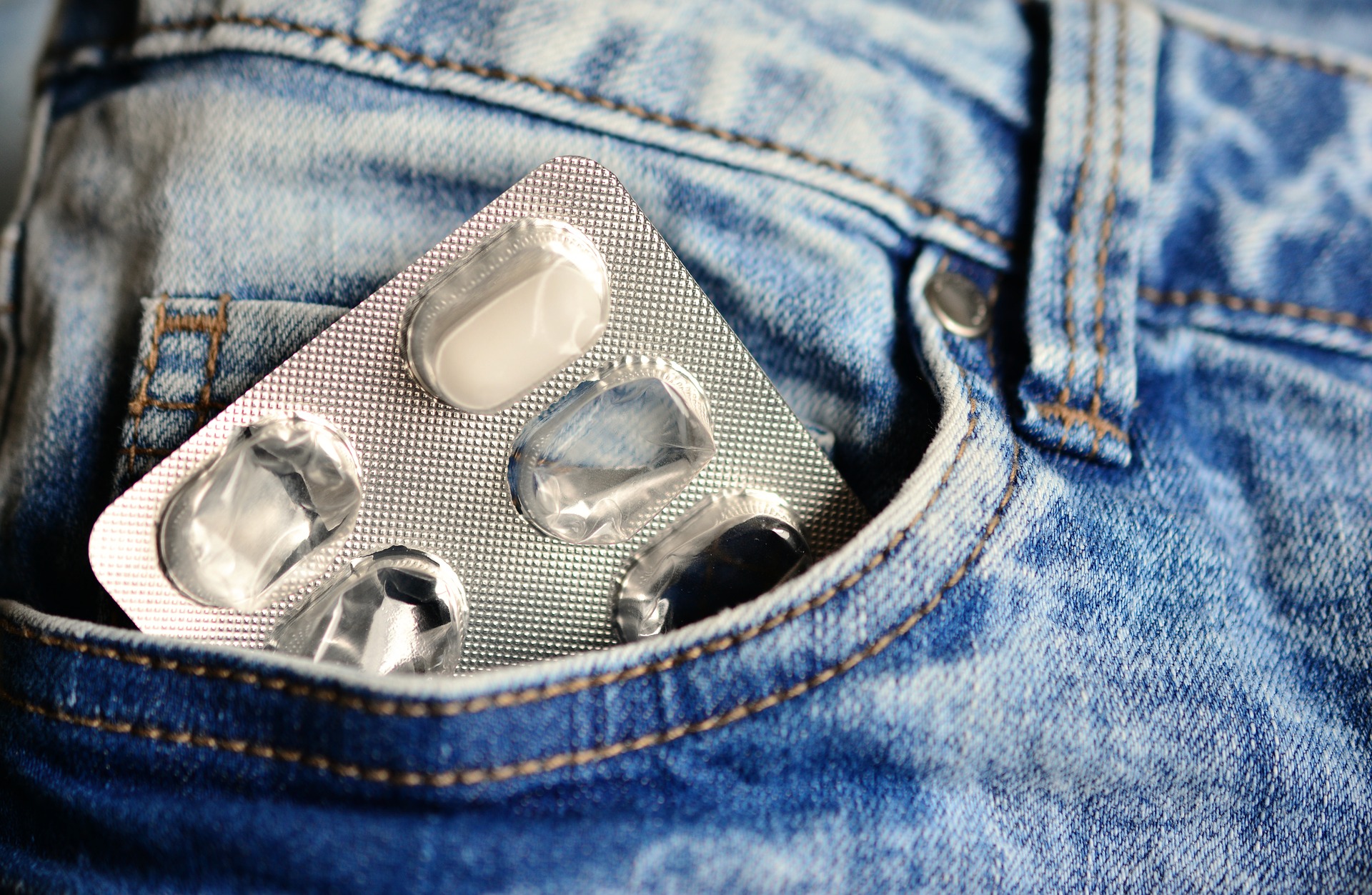
10 Best Supplements & for Women
1. Iron
Men and women have very different nutritional needs, and one that’s significant is the need for iron supplement in females.
Women should look to consume 15-18mg of iron daily, unless pregnant. If pregnant, jump that daily intake up to 27mg of iron daily. However, post-menopausal, iron supplementation is not as necessary, 8mg or less.
Iron has been used as a supplement since ancient times. The Greeks, Romans, Hindus, Egyptians all saw the importance of having Iron in the diet.
Iron is essential for the transportation of oxygen through red blood cells to the lungs and cells. Without iron, people tend to suffer from Anemia, and coincidently anemia is the most common blood disorder in the world. Iron also strengthens protein formation and immune function.
2. Apple Cider Vinegar
Apple Cider Vinegar was the American Colonists favorite supplement for centuries. Mainly because the water was undrinkable, but it turns out there’s a lot of gut health benefits to consuming Apple Cider Vinegar.
It can help detox the body and help with your body’s pH balance while helping treat acid reflux and heartburn.
The second President of the United States believed Apple Cider Vinegar killed the evil things inside him, and he wasn’t too far off.
Apple Cider Vinegar kills harmful gut and small intestine bacteria and promotes healthy and good probiotics.
And by killing bad bacteria, also helps with a person’s natural body odor. And again, Apple Cider Vinegar can help with oral health by killing the bad bacteria, so it helps with bad breath.
Lastly, there is evidence that Apple Cider Vinegar is beneficial for overall heart health. It can lower cholesterol levels and reduce blood pressure because of its natural antioxidants.
And right now there’s a modern movement to use Apple Cider Vinegar for weight loss. That seems to have a little less scientific evidence than the other benefits.
3. Vitamin D
A lot of the benefits of Vitamin D, also known as the “sunshine vitamin,” overlap with why Vitamin D is beneficial for men.
It increases calcium absorption and can reduce the risk of cardiovascular diseases. But Vitamin D adds a lot more to women’s health, and some of the main benefits of Vitamin D for a woman are increased fertility, help with breast cancer prevention, osteoporosis prevention and stronger bones, especially in post-menopausal women, and help with preventing polycystic ovary syndrome.
Vitamin D also has been linked to increase serotonin levels and help symptoms of depression.
Ever wonder why you feel a little sad in the wintertime? It’s in part because of not getting as much Vitamin D from the sun. There have been connections of Vitamin D deficiency in people suffering from depression.
4. Collagen
Many women who hear the word collagen tend to associate it with nail, hair and skin health.
So many celebrities to stay young use collagen.
Collagen is a protein found throughout the body in every aspect of the human system, including organs, ligaments, bones, blood, skin, eyes, muscles and teeth.
But collagen supplements do way more than improving your looks. It also helps take care of some serious problems with your digestive system – Like a leaky gut.
Collagen begins to deplete as humans ages, much of this can be seen with sagging skin, coarse hair, etc.
But some people who find themselves getting sick more frequently than others might have a problem with low levels of collagen and a leaky gut to blame for it.
Leaky gut is a continuing concern in people and is connected to autoimmune disease and chronic inflammation. The stomach has almost 60-80% of a person’s immune system and is home to bacteria.
When the bacteria begin to leak through the stomach and intestinal walls, toxins begin to absorb into the bloodstream and cause myriad of health problems.
Collagen can help “seal” some of these leaks, and by correcting the digestive system and how the body absorbs nutrients, there are tons of benefits.
The most obvious ones seen are better hair, nails, and skin. But it also helps significantly with decreasing inflammation in the joints and has been connected to improving arthritis. Collagen has a lot of beneficial properties, but it begins with bettering gut health.
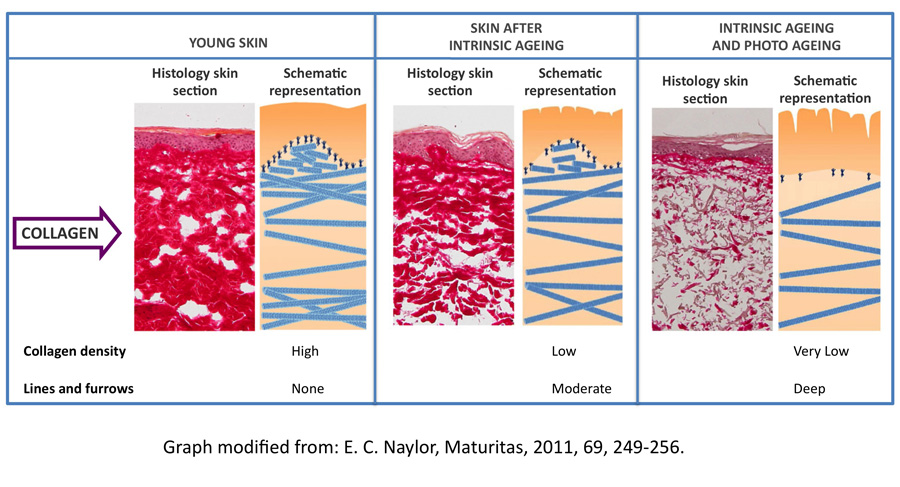
5. Fish Oil/ Omega 3
Men and Women should look to incorporate Fish Oils/ Omega-3s into their supplement routines. Some of the benefits are improved hair, skin and nails, but there have been significant studies performed that Omega-3s help with mood disorders like depression.
It’s been found in people who suffer from depression have unbalanced levels of Omega-6 and are deficient in Omega-3s. By taking an Omega-3 supplement is helps the body rebalance and improved overall mood.
For pregnant women, Omega-3s help with fetal growth, especially for the brain and retina. But for the mother, Omega-3s help with maternal-fetal connection and can prevent the onset of prenatal depression. Lastly, women who are postmenopausal who take fish oil supplements have noticed a decrease in hot flashes.
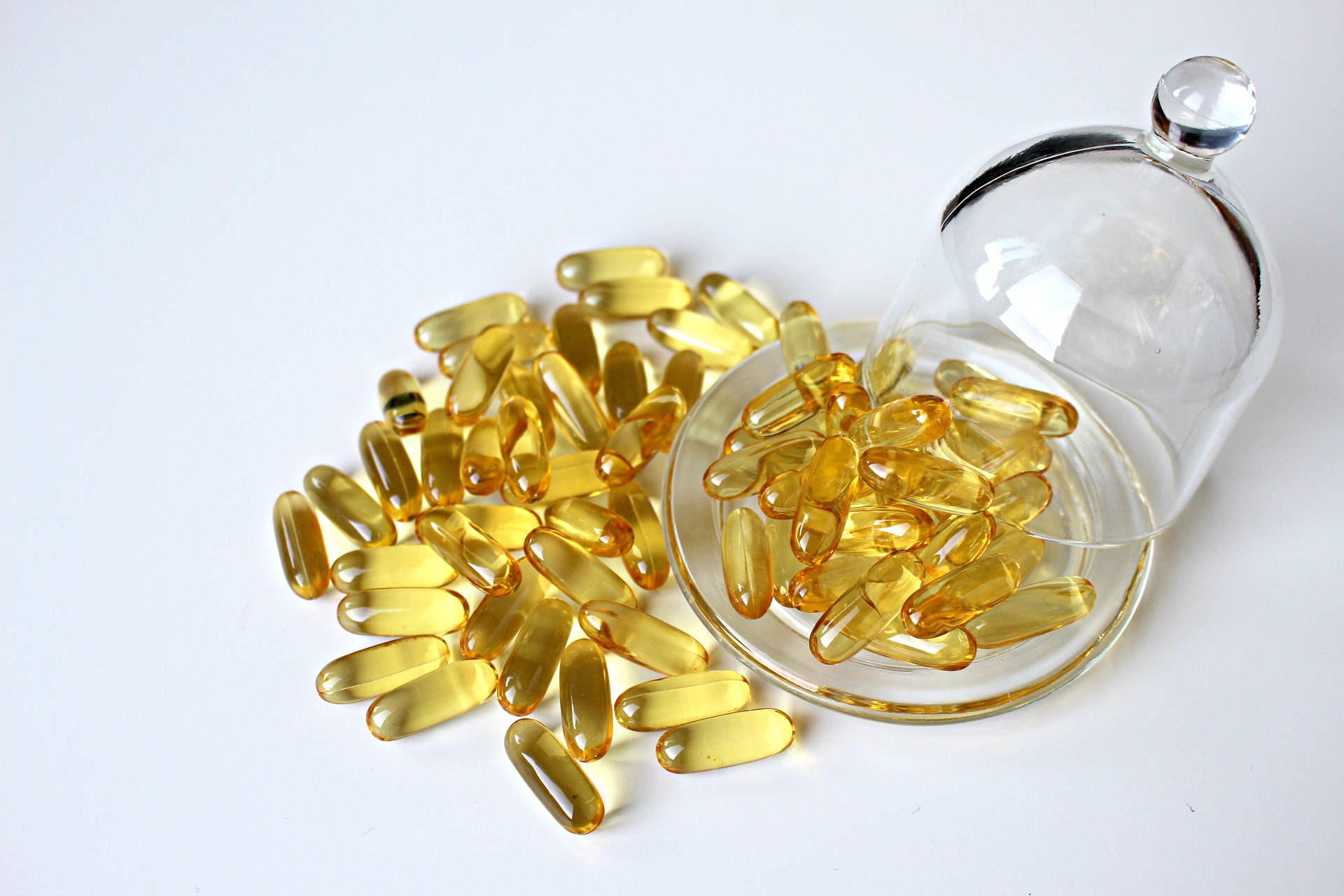
6. Baby Aspirin
Some physicians encourage those over the age of 25-years old to begin taking a daily dose of low aspirin, but if you are a woman over the age of 55 with no history of heart disease, it might be time to take some baby aspirin.
Aspirin is a known blood thinner and by taking a low dosage, it can help with circulation without developing a tolerance to it.
It has been connected to decreasing risk of strokes and heart attacks. There are still ongoing studies about the effectiveness of aspirin, but many physicians believe the effects it could have are worth considering.
7. Probiotics
Probiotics have similar benefits for both men and women, but when it comes to women, there’s a little extra boost for why probiotics should be consumed.
Especially if on antibiotics, birth control or using spermicides. Some good bacteria, Lactobacilli strains, are found in the vagina to keep a healthy level of acidity so harmful microorganism cannot survive.
However, if there is a shift in balance, women can suffer from bacterial vaginosis, yeast infections, and urinary tract infections. To keep a healthy vagina, it would be wise to incorporate probiotics into the supplement regimen.
8. Magnesium with Calcium
Strokes are the highest mortality rate in western countries, and many reasons can be attributed to blood pressure, insulin resistance, chronic inflammation, blood disorders like platelet function, thrombosis and oxidation.
Magnesium is the fourth greatest mineral in the body, and for full health, there needs to be a balance of electrolytes which includes magnesium along with potassium, sodium, and calcium in the body.
99% of magnesium is located in bones, muscles and non-muscular soft tissues. But as humans age, magnesium content in bones begins to decrease. Particularly in women.
Women between the ages of 31-70 years of age are recommended to take 320mg of magnesium per day. This is to prevent possible osteoporosis and to keep the human movement system working efficiently.
Americans tend to have a low intake of magnesium and impact the human metabolism because there’s an imbalance in electrolytes and it has been connected to strokes.
Magnesium assists in regulating “diverse biochemical reactions in the body, including protein synthesis, muscle and nerve transmission, neuromuscular conduction, signal transduction, blood glucose control, and blood pressure regulation.” It also plays a crucial role in our cellular function during aerobic and anaerobic exercises.
Magnesium is pretty critical for healthy living, and some supplements of magnesium offer a boost of calcium as well.
And for women’s bone health in aging, calcium is imperative to maintaining bone health, and overall cardiovascular health. It’s also been connected to helping with menstrual migraines.
9. B Vitamin Complex
Earlier on this list, B Vitamin Complex was included in the best supplement for men, but it’s equally as important for women to take.
Especially when feeling overwhelmed and stressed. B Vitamins can help with overall brain function, increased energy levels and helps with mental focus, and it’s less costly than other means of dealing with stressors.
And dealing with stressors in a healthy and effective manner is highly encouraged by friends and family when feeling the impact of premenstrual syndrome, more widely known as PMS. B1 and B2 have been associated with decreasing levels of PMS.
10. Multivitamin
Women’s needs are very different than men. However, menstrual women need different vitamins than post-menstrual women.
With this, if looking to incorporate a daily multivitamin into your routine, it would be encouraged to speak with a doctor first.
Because if your diet is enriched with the proper nutrients, vitamins, and minerals, you might be causing potential adverse effects by adding a multivitamin to the mix.
Though, if your diet is not as healthy and some vital minerals like calcium, magnesium or some B vitamins are missing, then going the route of multivitamin to reach the daily values (DV) might be worthwhile.
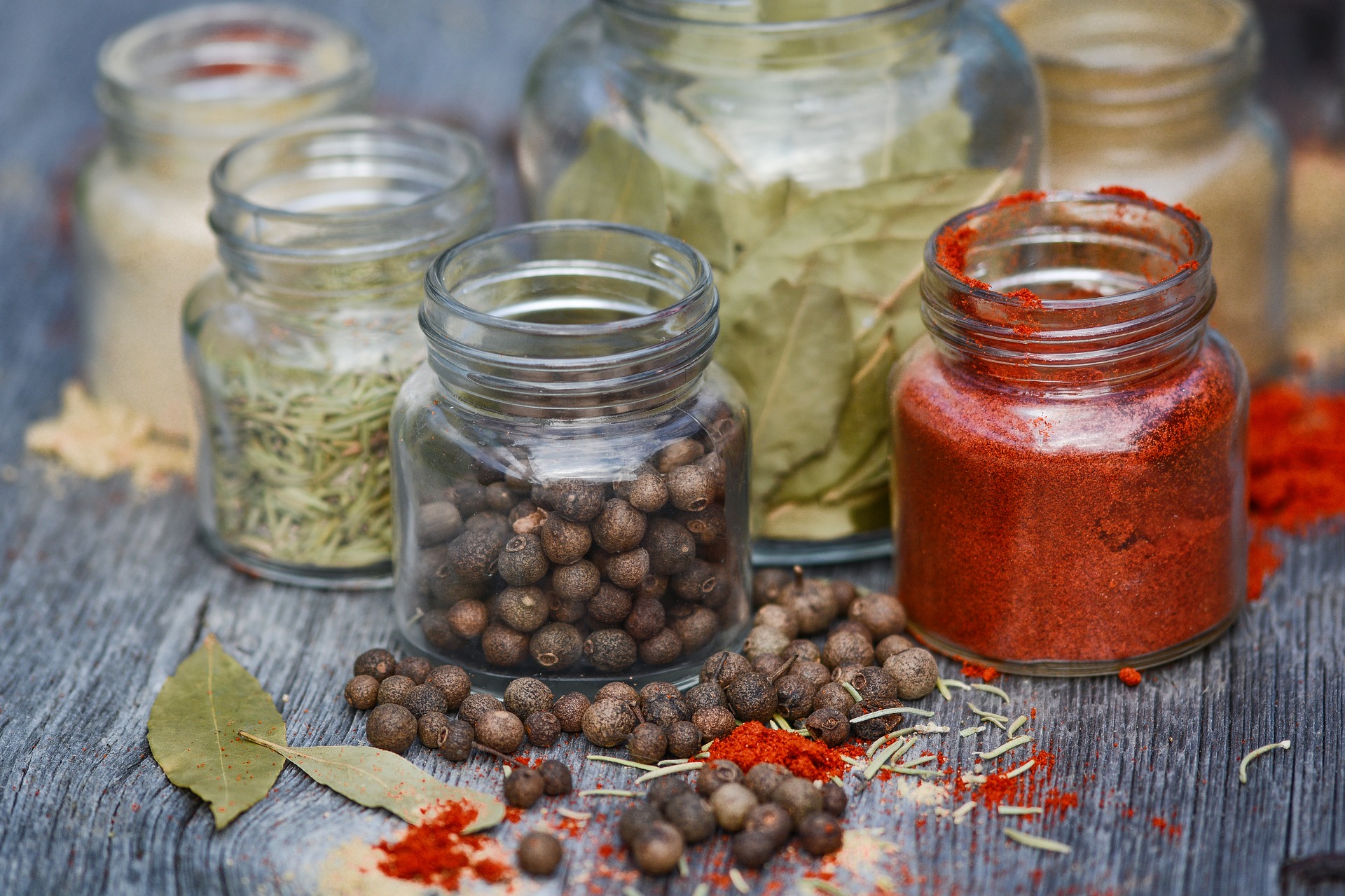
10 Best Natural/Herbal Supplements
Many of the supplements highlight above are also considered natural supplements because they are naturally occurring in the body or can be found organically. Here are a bonus 10 Supplements that can assist in healthier living and are easily accessible.
1. Pomegranate Extract
Whether you take pomegranate extract, or drink pomegranate juice or eat pomegranate seeds in your yogurt (for additional probiotics of course), you are consuming potent antioxidant fruit.
Antioxidants fight against free radicals in the body, and this fruit, in particular, can help boost the cardiovascular system.
Memorial Sloan Kettering Cancer Center highlighted in 2005 how pomegranate juice has helped with coronary artery disease.
Moreover, the pint-sized seeds have proven to help prevent cancer, and help the body find relief from inflammation.
2. Ginkgo Biloba
Ginkgo Biloba is an ancient plant seed with origins in Chinese medicine. It’s also the top-selling herbal supplement. It is widely recognized for its antioxidant and anti-inflammatory benefits, but it also has been connected to improving circulation.
In fact, it is considered a natural remedy for asthma. It also has cognitive benefits and has been used as a natural supplement to aid in ADHD because it can improve mood, focus, and memory.
Some have connected it to assisting in dementia prevention, but those studies are still inconclusive.
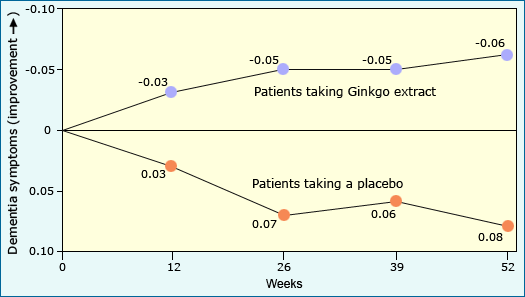
3. Cinnamon
Nutritionist love cinnamon as an alternative topping to sugar. It’s lower in calories and gives foods a robust and sometimes spicy taste.
But did you know cinnamon can help with Type II Diabetes? It can help lower insulin resistance, and has been noted to help lower blood sugar fasting upwards to 29 percent!
Cinnamon works directly with muscles to remove glucose from the bloodstream and convert to energy.
Could Cinnamon be a useful topping to coffee before a workout? Certainly, could! It also is an anti-inflammatory spice and has been connected to lowering risk of cancer because of the potency of antioxidants.
When cinnamon is sitting on the shelf, be sure to add to your desserts or mix into your pancakes.
4. Glucosamine
Glucosamine is a popular remedy for those who have joint or bone pains.
During the 2000s glucosamine sulfate was widely used to treat osteoarthritis, but in recent years there has been a drop-off with inconclusive clinical trials.
It’s also been considered to help with aging joints by slowing down the loss of fluid around the joints and cartilage.
Plus it removes the inflammation of the joints and can help with overall gut health.
Remember the leaky gut and how collagen can help fix the leaks? Glucosamine has similar properties to help with digestion and gut health.
5. Ginger
Whole Foods claims ginger to be one of the world’s healthiest foods, and it has been used in medicine for millennials.
Its traced as far back as 4700 BCE. Ginger consists of a compound called gingerol. Gingerol is an oily resin which gives ginger its enormous anti-inflammatory and antioxidant properties.
Ginger has an anti-blood clotting reputation and can help with blood disorders and high cholesterol.
With decreasing inflammation, its no surprise this root is rooted in the treatment of arthritis, ulcers, and pain. This is a natural pain reliever!
When it comes to infections, ginger has been consumed to help with bacterial and fungal infections.
The antioxidant properties fight against free radicals and help boost the immune functions. Lastly, when someone has a stomach ache, it’s not uncommon to have ginger ale be the remedy.
Ginger for centuries has helped with nutrient absorption and of course, has also assisted in relieving indigestion and nausea.
It helps relax and soothe the muscles in the stomach to make everything move a little smoother.
Ginger root is the most popular natural and herbal remedy in the world and will continue to be with all the incredible health benefits.

6. Garlic
Do you have adult acne? A natural and inexpensive remedy for adult acne is garlic.
Rub a little garlic on your next pimple and see the sulphuric compounds of garlic treat the blemish.
But if you have high cholesterol, try taking a garlic supplement instead of statin, and you might see some improvements in your HDL.
Over and over again clinical studies have proven garlic helps remove dangerous lipids and plaque from the arteries.
Blood can flow a little better, and cardiovascular health will improve. There are also anticancer properties in garlic as well and can help reduce risks of cancer cells from metastasizing.
Garlic has also proven to help with inflammation in the liver and can assist in healing a damaged liver.
With the increasing popularity of wine consumption in Millennials, perhaps garlic consumption will go up too.
Lastly, garlic has anti-microbial properties. Garlic is fast-acting in combating certain bacterial and fungal infections.
It also helps repel mosquitos and other blood-sucking bugs. The folklore about repealing Dracula with garlic has a little truth to it after all.
7. Asian Ginseng
Chinese Ginseng is a very popular supplement globally. It can be found in teas, energy drinks, and of course in capsule form.
Ginseng is a stimulant and can be used as a weight-loss supplement, but many people attribute strong cognitive function to ginseng.
There have been some studies that connect ginseng to naturally treating erectile dysfunction, and coincidently it’s also been linked to helping with menopause, and depression.
The natural stimulants in ginseng help with alertness and memory, and lastly ability for abstract thought.
Like many other anti-inflammatories, there have been connections to anti-cancer properties, and Asian Ginseng has been connected to cancer prevention.
For over 2,000 years, Ginseng has been used by natural doctors to treat and prevent cancers.
The American Botanical Council noted,
“Asian ginseng is thought to have a potential role as a cancer preventive and treatment agent include the mitigation of DNA damage, anti-inflammatory carcinogenesis, antioxidant chemo-prevention, apoptosis induction, inhibition of cancer cell proliferation, and immuno-modulation.”
Finally, because of the positive stimulant properties in Asian ginseng, it would benefit athletes in sports performance.
Plus it helps with overall cardiovascular health, and helps heart health and lowers cholesterol. So when you see your ice tea with a hint of ginseng, it might give you the added boost in the day you are looking for while healing your body too.
8. Melatonin
If you’re having trouble sleeping, popping a melatonin pill, or what is known as the “hormone of darkness,” will help you get a little rest.
Melatonin is a naturally occurring secretion in the body, but sometimes the lack of it keeps people up at night.
But to treat restless nights with melatonin supplement doesn’t leave a feeling of drowsiness the next morning. But did you know there’s more to melatonin than just lulling a person to sleep?
Melatonin has anti-inflammatory, antioxidant, and anti-coagulopathic properties. So as you sleep, melatonin hormones are working to help the body recover and heal.
Currently, there are clinical studies on the benefits of using melatonin to treat Parkinson’s disease and Alzheimer’s disease. So don’t fear the sleep hormone, it can do a lot more for you than get you to dreamland.
9. Chromium
Chromium is a naturally occurring mineral that helps regulate blood sugar levels. You can get chromium in a capsule, or if you are looking for it naturally, it’s in broccoli.
Women should look to increase their chromium intake during pregnancy because it has been clinically proven to assist in maintaining blood glucose levels.
Chromium helps directly with metabolizing fats, carbohydrates, and proteins and supports weight management.
The weight management can assist with Type II Diabetes because as insulin resistance occurs and blood sugar levels remain high, a chromium supplement can assist in lowering the blood sugar levels, and getting the body back to homeostasis.
Also, chromium helps with lowering cholesterol levels, again a strong component of weight management.
10. Beetroot
Beetroot is a superfood, and more juice bars are beginning to add it to help detoxify the body.
Plus it can be found in concentrated amounts in capsules and some weight loss supplements.
Beetroot has high amounts of iron and folate. It can help lower blood pressure, improve athletic performance by increasing blood flow.
Finally, it can help clean and detoxify the liver and kidneys. That’s why if you drink straight beetroot juice, your urine will have a hint of pink.
The high amounts of iron in beetroot makes it ideal for women to use as a natural supplement.
Helps prenatal fetus develop, and can prevent preeclampsia. Beetroot also helps regulate the digestive tract and provide relief for constipation.
So next time you go to the store, grab juice fortified with a little extra beetroot and reap the benefits of this superfood.
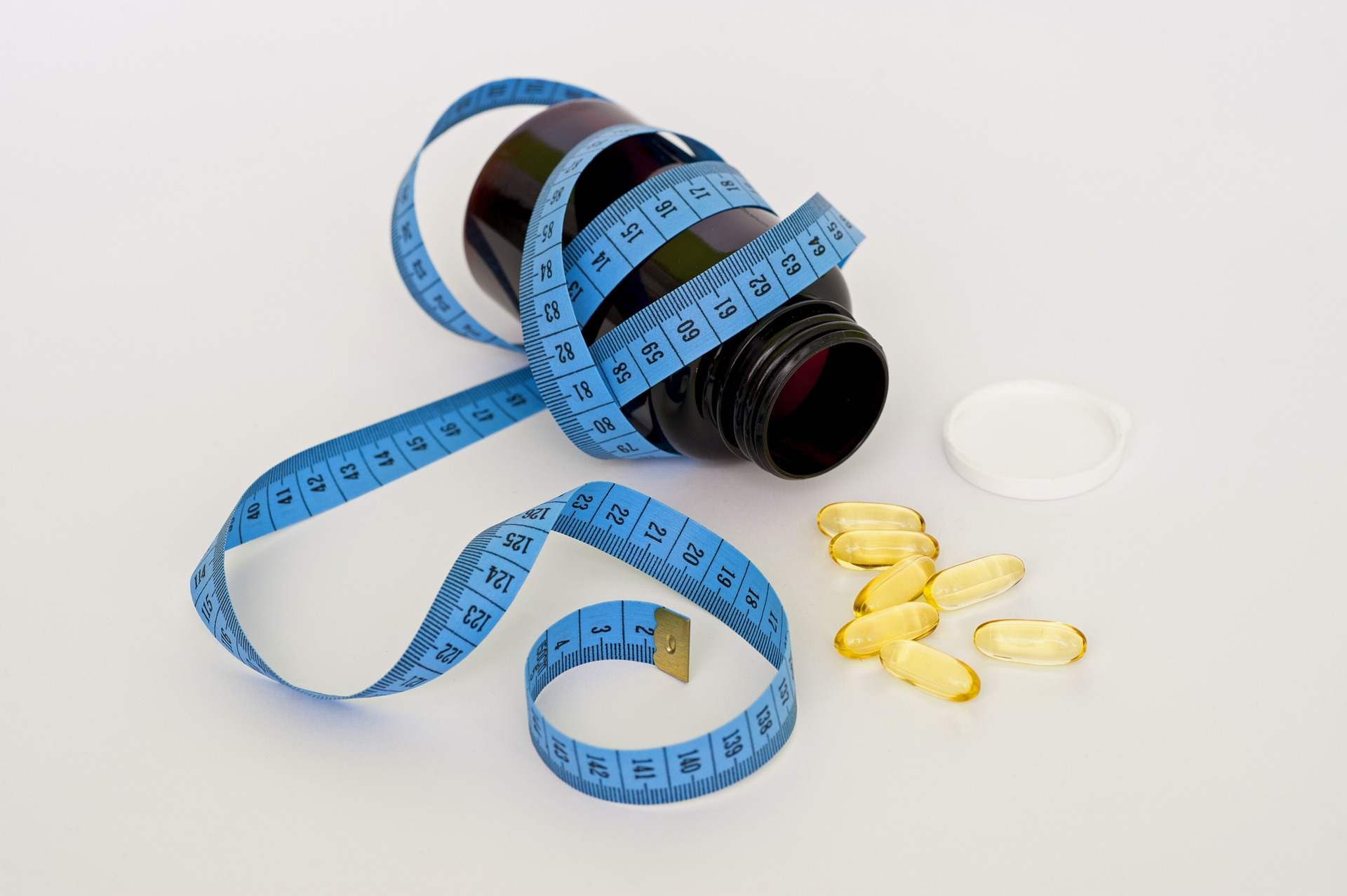
Medically/Scientifically Proven Weight Loss Supplements
The following supplements have been approved by the Food & Drug Administration for treating weight loss. Need a prescription from a doctor.
1. Alli- Orlistat
This is an over-the-counter weight loss medication.
Alli is a lipase classification of drugs, which means it has properties to block the small intestines from absorbing 25% of the fat you eat.
That fats you don’t eat are removed through bowel movements. It has been reported that when an individual eats a high-fat meal on Alli, the bowel movements are painful.
Therefore, users on Alli are recommended to use the drug in conjunction with a calorie-restrictive and low-fat diet. This drug has shown positive results in assisting people with weight loss and reducing the stubborn belly fat.
There are connections to lowering an individuals risk of Type II Diabetes, Stroke, Blood Pressure, and Heart Disease.
2. Contrave- Bupropion + Naltrexone
Contrave is the number one prescription weight loss medication.
Coincidently it was created to treat Type II Diabetes but users on Contrave lost significant amounts of weight, and the medication was rebranded and marketed as weight loss medication.
Bupropion is listed as a top ingredient for a reason, and that’s because this ingredient is common in anti-depressants and also has been linked to individuals having suicidal thoughts.
So if someone is looking to lose weight but also suffers from psychological disorders, this would not be recommended.
Contrave is an extended-release tablet containing active ingredients of Bupropion and Naltrexone.
Naltrexone is an opioid antagonist, which is commonly used in treating alcohol and opioid dependence.
Whereas Bupropion is a norepinephrine and is often used in depression medications and nicotine dependency.
Together, they increase a person’s energy levels while simultaneously reduce appetite. Which results in proven weight loss, as long as it’s in conjunction with a low-calorie diet and physical activity.
3. Belviq- Lorcaserin
Belviq is a weight management tablet and lorcaserin is the main ingredient which is considered to be a psychoactive drug which targets the serotonin receptors.
Serotonin has been connected to playing an important role in managing satiety and hunger control. What this drug does is inhibits serotonin receptors, therefore reducing appetite.
“Drugs that interfere with serotonin neurotransmission should be used with caution like, selective serotonin reuptake inhibitors, serotonin-norepinephrine reuptake inhibitor, and monoamine oxidase inhibitors; which can lead to serotonin syndrome.”
A common side effect is a confusion, increased heart rate, suicidal thoughts, depression, unusual agitation, and unexplained fever.
And like many weight loss medications, to see best results the medication needs to be used in conjunction with a healthy diet and physical activity.
4. Saxenda
Saxenda is not a tablet or a capsule but is a one-a-day weight loss injection.
Similar to that of injecting insulin. Though this product is the newest innovation to combating obesity, it was once upon a time ago a diabetes medication called Victoza.
Saxenda is a shot of synthetic protein to emulate glucagon-like peptide one agonist (GLP-1). GLP-1 is a hormone that typically is released in our gut after ingesting food, and GLP-1 main role is to regulate blood sugar levels.
So it naturally regulates blood sugar levels, while opposing insulin called glucagon.
Moreover, Saxenda has been studied to slow down the emptying of the stomach, which has resulted in users eating less, suppressing appetite, and therefore losing weight.
5. Qsymia- Phentermine + topiramate
Qsymia was approved to treat those who have a BMI of 27 or higher with a unique compound of Phentermine and Topiramate.
Phentermine is a common ingredient in weight loss supplements. However, Topiramate is connected to anti-epilepsy medications.
These two substances combined though have been clinically tested and have shown positive effects for weight loss, and together at a lower dosage than if they were taken individually.
It also has a positive impact on lowering the progression of Type II diabetes and hypertension. Both common diseases associated with obesity.
This drug is a psychoactive medication which targets the hypothalamus. Phentermine helps suppress appetite whereas topiramate slows down brain cells, especially when a person is about the have a seizure.
However, topiramate medications have resulted in people losing almost 12 pounds in 3 months. So when combined with a weight loss supplement like Phentermine, there have been positive outcomes of people losing upwards to 8.1-10.9% of their initial weight.
However, like many weight loss medications, proper diet and physical activity will help the individual on their weight loss journey.
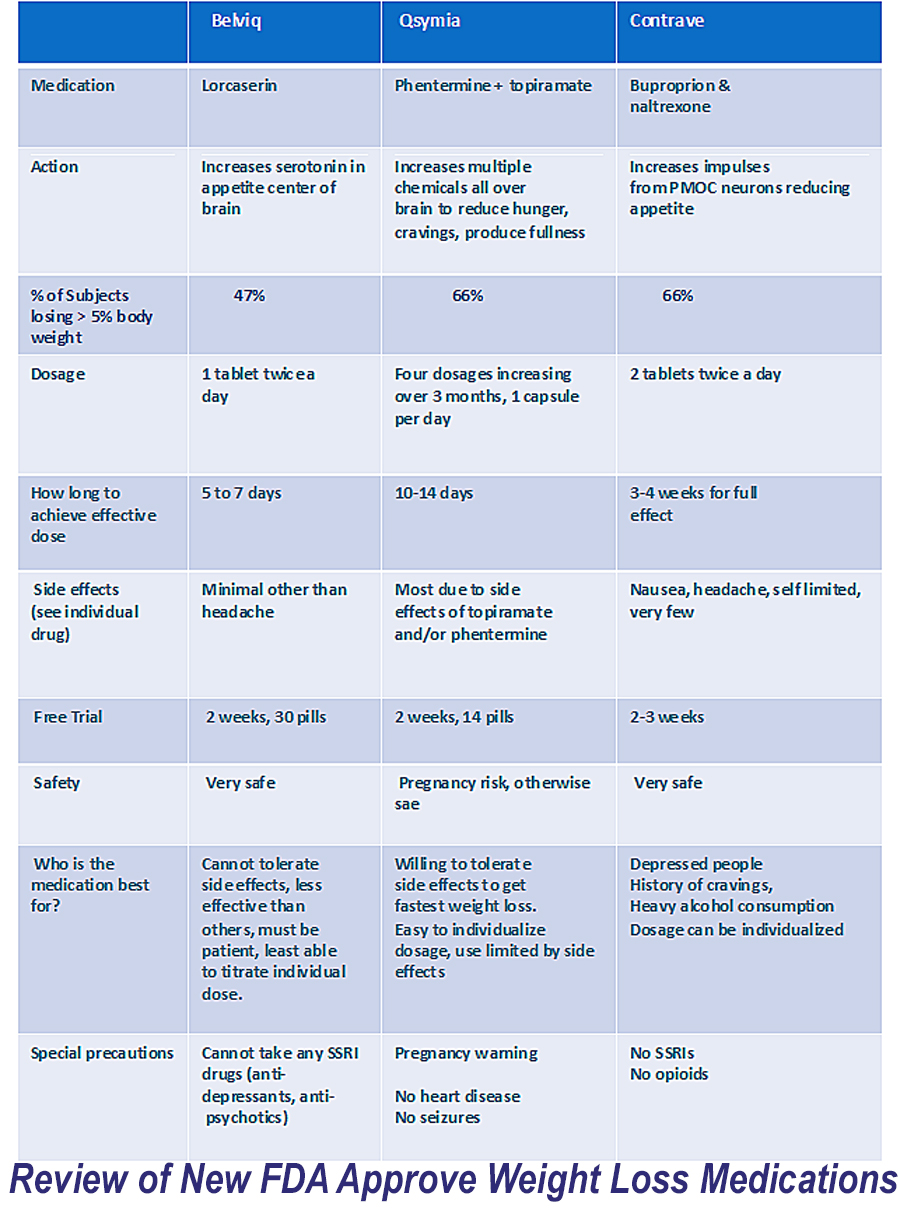
Main photo courtesy of Pixabay
Sources and citations
- https://ods.od.nih.gov/factsheets/MVMS-HealthProfessional/ ↩︎
- https://www.forbes.com/sites/jackperkowski/2014/11/12/health-care-a-trillion-dollar-industry-in-the-making/ ↩︎
- https://globenewswire.com/news-release/2016/07/18/856668/0/en/Dietary-Supplements-Market-Size-Is-Projected-To-Reach-278-02-Billion-By-2024-Demand-In-Food-Beverage-Sector-Grand-View-Research-Inc.html ↩︎
- http://journals.sagepub.com/doi/abs/10.1177/026010600701900205 ↩︎
- https://ods.od.nih.gov/Health_Information/Dietary_Reference_Intakes.aspx ↩︎
- https://www.ncbi.nlm.nih.gov/pubmed/15703550 ↩︎
- https://hms.harvard.edu/sites/default/files/assets/Sites/Longwood_Seminars/Nutrition_3_5_13.pdf ↩︎
- https://www.ncbi.nlm.nih.gov/pmc/articles/PMC3633300/ ↩︎
- https://www.ncbi.nlm.nih.gov/pmc/articles/PMC5003001/ ↩︎
- https://www.ncbi.nlm.nih.gov/pubmed/9405716 ↩︎
- https://www.ncbi.nlm.nih.gov/pubmed/16002802 ↩︎
- http://www.jabfm.org/content/22/6/698.full ↩︎
- https://www.ncbi.nlm.nih.gov/pmc/articles/PMC3356951/ ↩︎
- http://www.parathyroid.com/high-calcium.htm ↩︎
- https://www.ncbi.nlm.nih.gov/pmc/articles/PMC3178961/ ↩︎










